×
Il semble que vous utilisiez une version obsolète de internet explorer. Internet explorer n'est plus supporté par Microsoft depuis fin 2015. Nous vous invitons à utiliser un navigateur plus récent tel que Firefox, Google Chrome ou Microsoft Edge.
My Player placeholder

Devenez membre d'Incathlab et bénéficiez d'un accès complet !
Vous devez être membre pour accéder aux vidéos Incathlab sans limitation. Inscrivez vous gratuitement en moins d'une minute et accédez à tous les services Incathlab ! Vous avez aussi la possibilité de vous connecter directement avec votre compte facebook ou twitter en cliquant sur login en haut à droite du site.
Inscription Connexion
Inscription Connexion
This didactic procedure concerns an 83 years old man with a history of multiple percutaneous coronary interventions with a chronic total occlusion of the left circumflex and a symptomatic severe aortic stenosis that was assigned for TAVI treatment by the Heart Team with an ACURATE Neo2 Valve.
Educational objectives
- Step-by-step implantation of the ACURATE Neo2 Valve
- Step-by-step use of the SENTINEL™ Cerebral Protection device
- How valve design impact coronary access and condition future treatment options for the patient after TAVI
- Tips and tricks to preserve coronary access after TAVI
- Advantages of the ACURATE Neo2 valve system in horizontal aortic root
Step-by-step procedure: Left internal carotid artery stenting
1) Access sites and set-up
- Femoral access: Ultrasound guided puncture
- Second Access: Left radial access 6 Fr: Aortic angiogram
- Third access: Right radial access 6 Fr: Implantation of cerebral protection device: distal and proximal filter after a good screening on pre-TAVI CT for left carotid and brachiocephalic arteries diameter
- Pre-closing with 2 ProGlide™ systems.
- Support guidewire through very tortuous iliac arteries: Lunderquist® guidewire.
- Advancement of the large bore sheath on the Lunderquist® guidewire smoothly under fluoroscopy through tortuous and kinked iliac arteries.
2) Aortic valve crossing
- AL1 catheter with Terumo® straight tip
- Exchange with pre-shaped Safari ® guidewire
- Ensure good position of the wire on LV with the Pigtail catheter
- Ensure a good position of the pigtail catheter at the bottom of the NC cusp
3) Pre-dilatation valvuloplasty
- Non-compliant 22mm balloon. (Minimum diameter of the valve 23mm)
- Pacing over the wire at 180 bpm.
4) Advancement of the ACURATE Neo2 Valve
- Description of the delivery catheter
- Aortic arch crossing: avoid interference with the cerebral protection device
- Pre dilatation of the lesion using a 5.5*20mm Ultra-Soft™ balloon.
- Positioning the valve through the horizontal aortic root (valve/wire maneuver)
5) Implantation of the ACURATE Neo2 Valve
- ACURATE Neo2 Valve: implantation marker in the delivery system that indicates the level of implantation: 7mm marker Angiogram check of the position of the valve before delivery
- Delivery of the valve: turn wheel 1 slowly
- Check the level and the opening of the upper crown of the valve towards the aortic root
- Ensure good alignment with the outer aortic root curve
- The annular part of the valve is the last to be opened
- Fast opening the wheel 2
- Retrieve the delivery system in the descending aorta
Tips and tricks for commissure alignment with the ACURATE Neo2 valve: Put the pin at 6 o’clock / alignment of the three stent arches.
6) Final control of valve implantation results
- Check of the valve opening and the height of the implant, aortic regurgitation
- Angiogram control
- Hemodynamic pressure control
- ECG control
- Echo control
7) Remove of the SENTINEL™ Cerebral Protection device
8) Vascular closure with 2 ProGlide™ at 2 and 10 O’clock.
Bibliography
Audience
This webinar is for Interventional Cardiologists and Heart Surgeons who implant TAVI devices or have an interest in learning more about Transcatheter Aortic Valve Implantation, as well as non-invasive Cardiologists with an interest in the current developments in the field TAVI therapy for their patients.
Date du tournage : 27/04/2021
Dernière mise à jour : 28/02/2022
Dernière mise à jour : 28/02/2022
Our Cases of the Month
The case of the month is a new way for our users to watch, learn, and share with incathlab. They can watch a video that highlights an innovative case and uses excellent pedagogical techniques, lear...
Partager
Participer à la discussion
Suggestions
Lundi 30 novembre -0001 de 00h à 00h (GMT+1)
Honolulu : Lundi 29 novembre 1999 de 12h à 12h (GMT+1)
San Francisco : Lundi 29 novembre 1999 de 14h à 14h (GMT+1)
New York : Lundi 29 novembre 1999 de 17h à 17h (GMT+1)
Buenos Aires : Lundi 29 novembre 1999 de 19h à 19h (GMT+1)
London / Dublin : Lundi 29 novembre 1999 de 22h à 22h (GMT+1)
Paris / Berlin : Lundi 29 novembre 1999 de 23h à 23h (GMT+1)
Istanbul : Mardi 30 novembre 1999 de 00h à 00h (GMT+1)
Moscou / Dubaï : Mardi 30 novembre 1999 de 02h à 02h (GMT+1)
Bangkok : Mardi 30 novembre 1999 de 05h à 05h (GMT+1)
Shanghai : Mardi 30 novembre 1999 de 06h à 06h (GMT+1)
Tokyo : Mardi 30 novembre 1999 de 07h à 07h (GMT+1)
Sydney : Mardi 30 novembre 1999 de 08h à 08h (GMT+1)
Wellington : Mardi 30 novembre 1999 de 10h à 10h (GMT+1)
San Francisco : Lundi 29 novembre 1999 de 14h à 14h (GMT+1)
New York : Lundi 29 novembre 1999 de 17h à 17h (GMT+1)
Buenos Aires : Lundi 29 novembre 1999 de 19h à 19h (GMT+1)
London / Dublin : Lundi 29 novembre 1999 de 22h à 22h (GMT+1)
Paris / Berlin : Lundi 29 novembre 1999 de 23h à 23h (GMT+1)
Istanbul : Mardi 30 novembre 1999 de 00h à 00h (GMT+1)
Moscou / Dubaï : Mardi 30 novembre 1999 de 02h à 02h (GMT+1)
Bangkok : Mardi 30 novembre 1999 de 05h à 05h (GMT+1)
Shanghai : Mardi 30 novembre 1999 de 06h à 06h (GMT+1)
Tokyo : Mardi 30 novembre 1999 de 07h à 07h (GMT+1)
Sydney : Mardi 30 novembre 1999 de 08h à 08h (GMT+1)
Wellington : Mardi 30 novembre 1999 de 10h à 10h (GMT+1)
Complex CTO: Ostial LAD CTO with ambiguous Proximal CAP
Case of the month: May 2019
Partager
Stenting of obstructive right femoro-iliac post-thrombotic lesions
Case of the month: January 2020
Partager
Nothing Left behind Strategy: Long SFA lesion, Directional atherectomy & DCB
Case of the month: December 2018
Partager
Provisional Bifurcation techniques to support bailout scenarios
Insights from the Visible Heart�...
Case of the month: July 2024
Partager
IMAC 2019 : Fenestrated EVAR for chronic dissection thoracoabdominal aortic aneurysm
Case of the month: October 2021
Partager
Simultaneous treatment of two coronary artery bifurcations in three vessels disease patient
Dedicated coronary bifurcation stents - Case of the month: May 2018
Partager
Left CAS for ulcerated Carotid stenosis, Difficult femoral access
Case of the month: June 2021
Partager





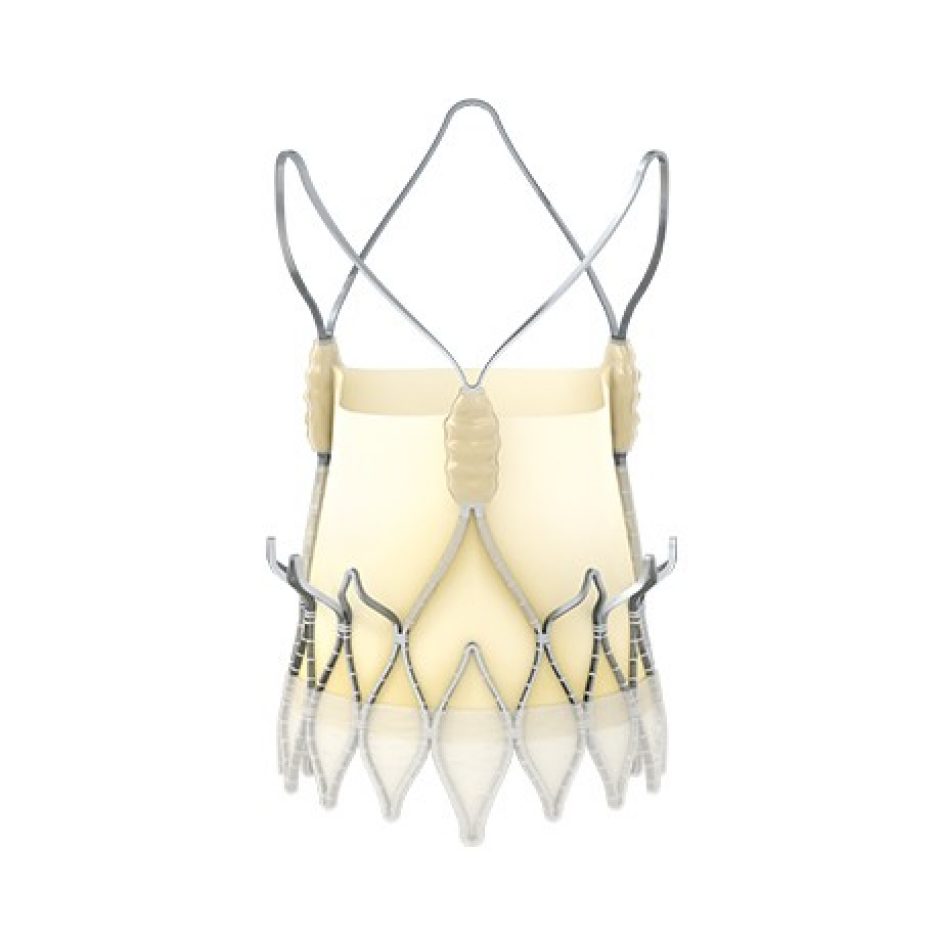
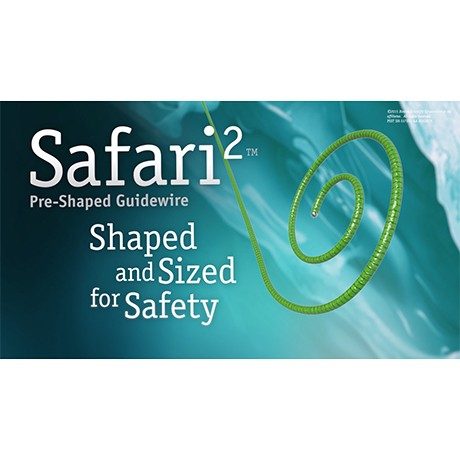
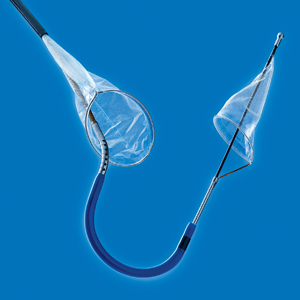
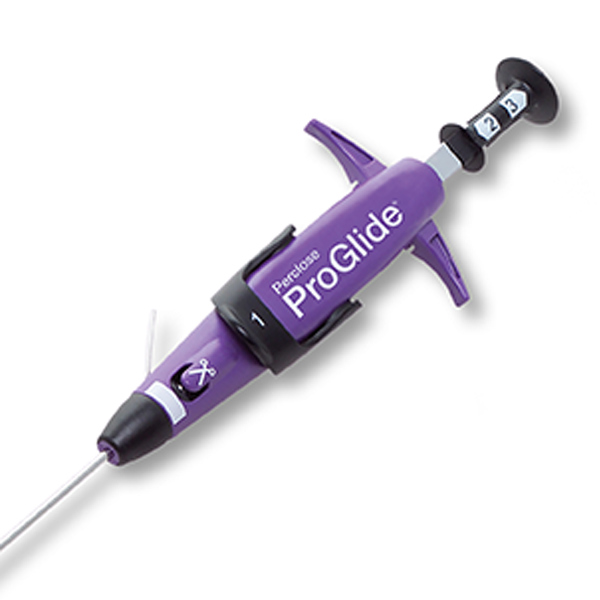
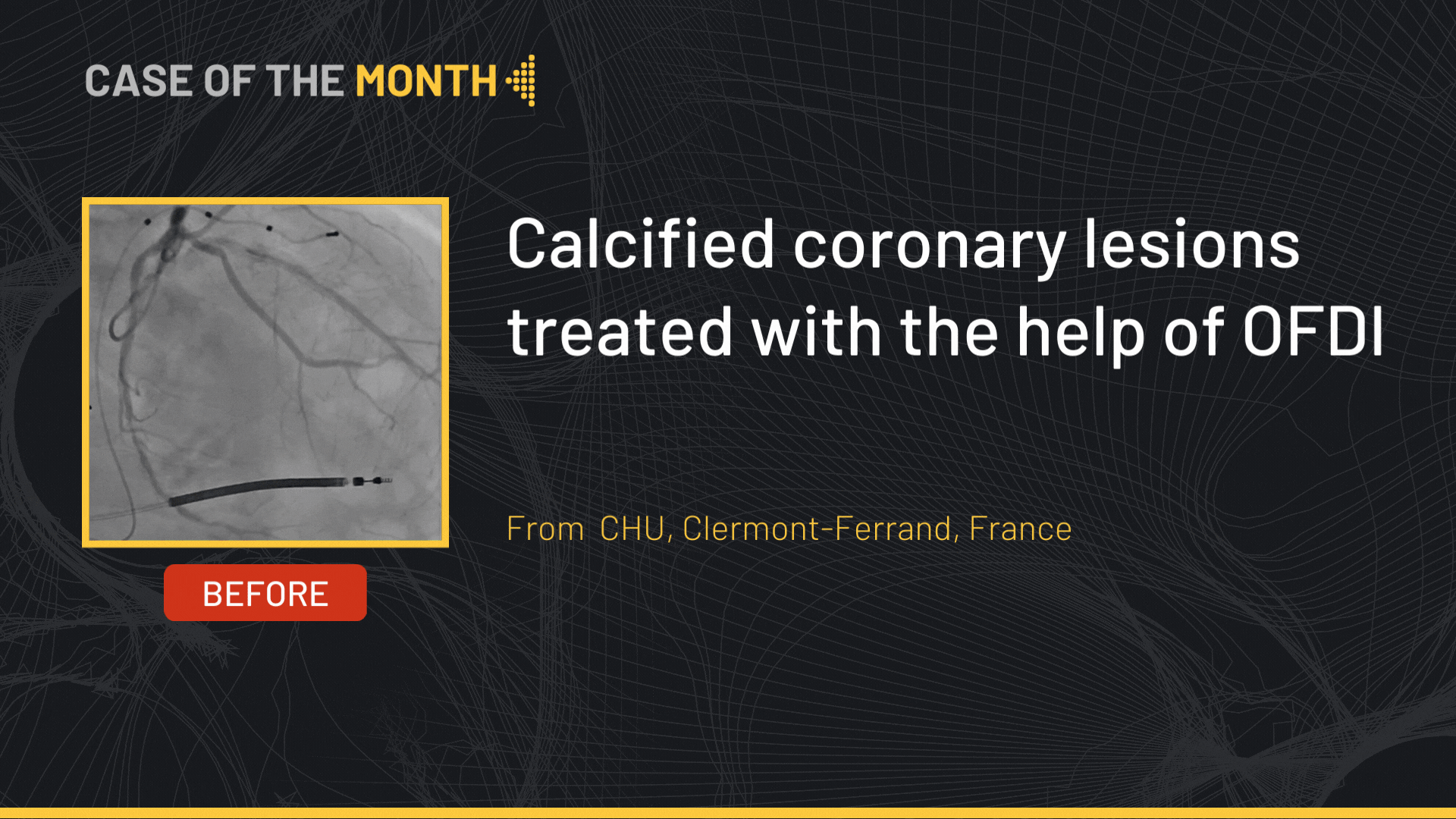
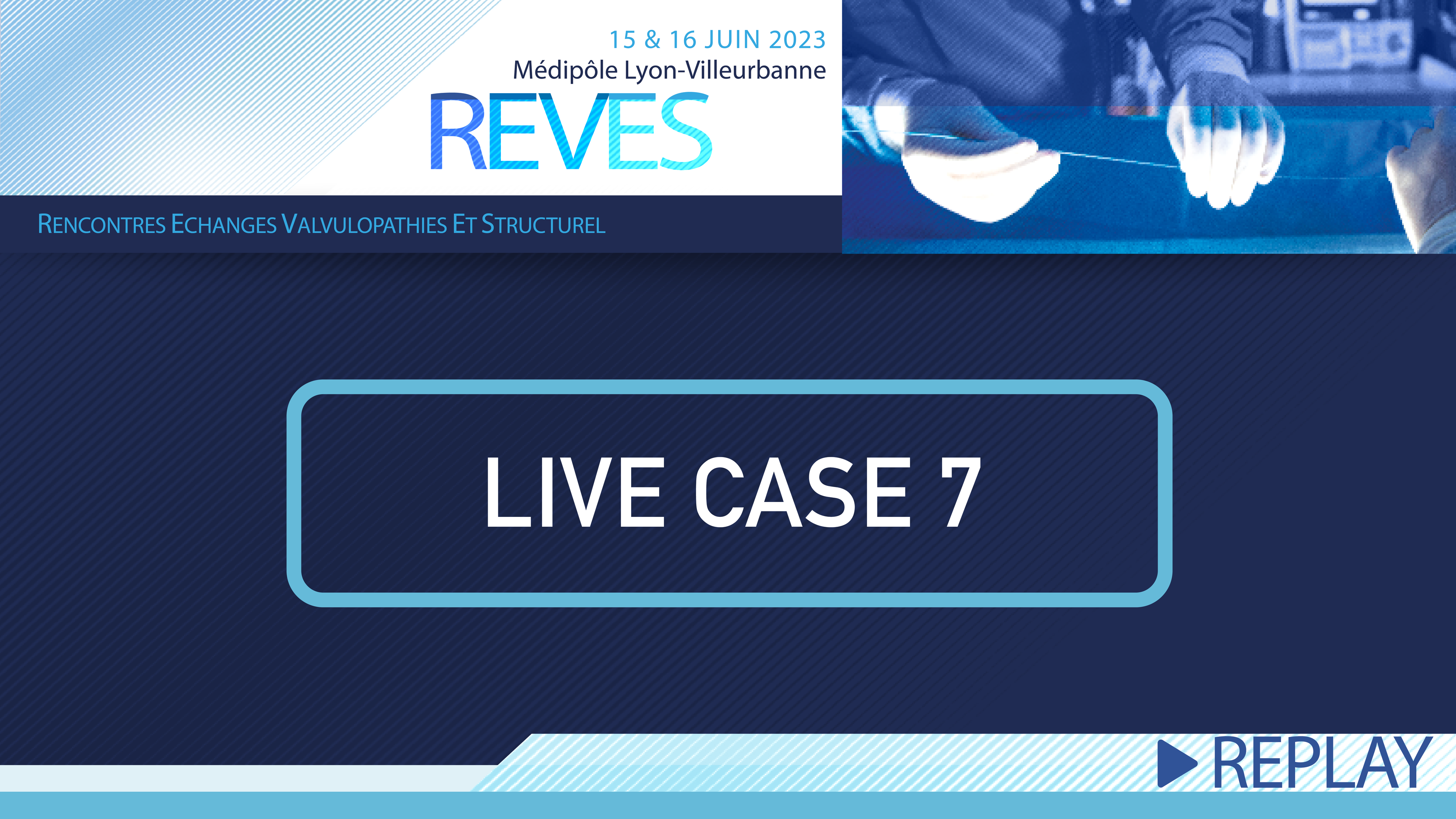
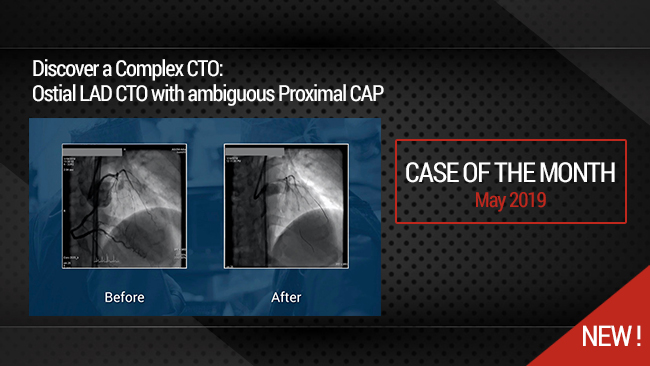
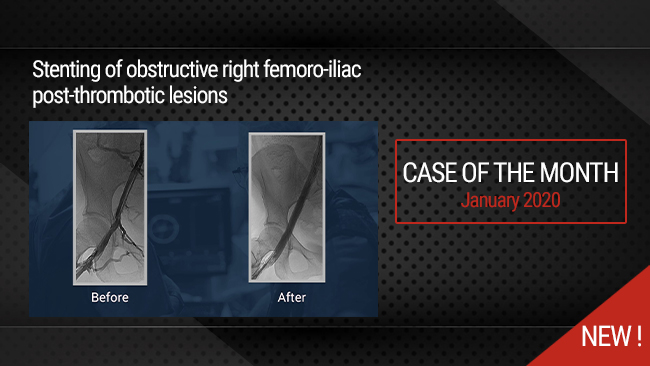
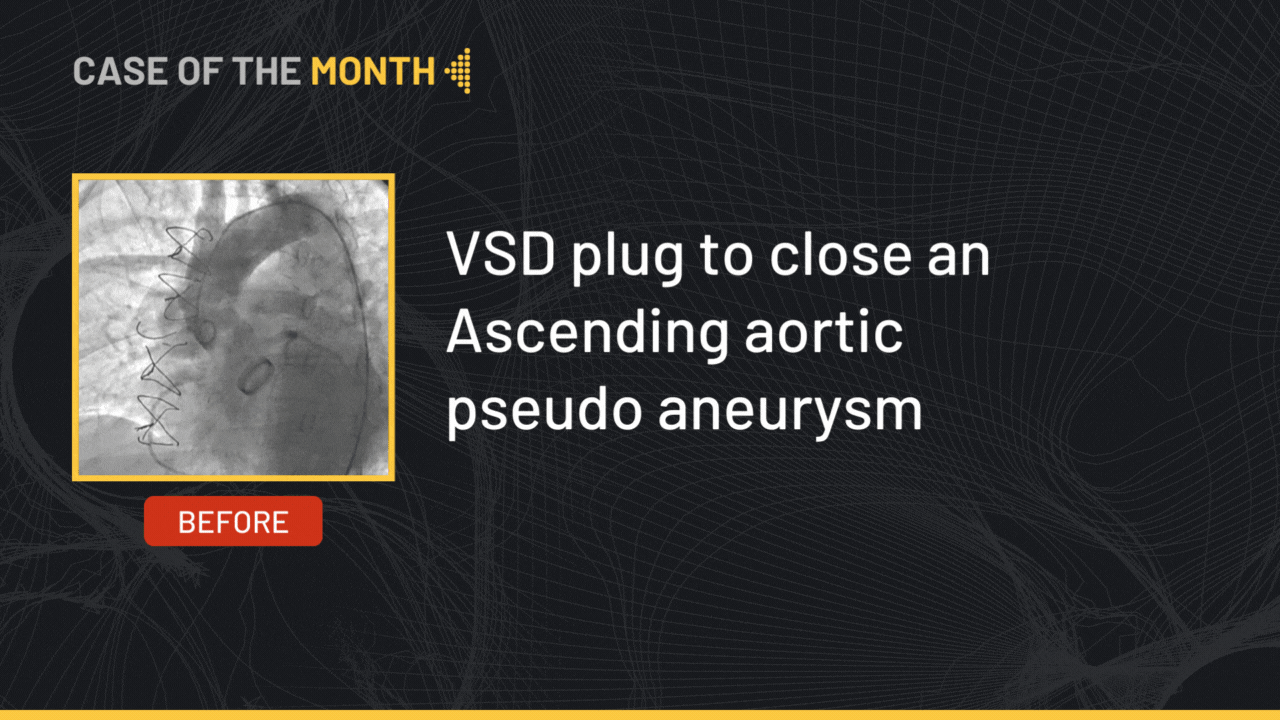
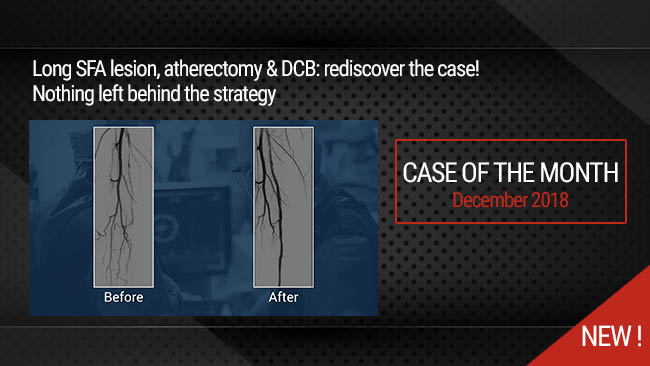
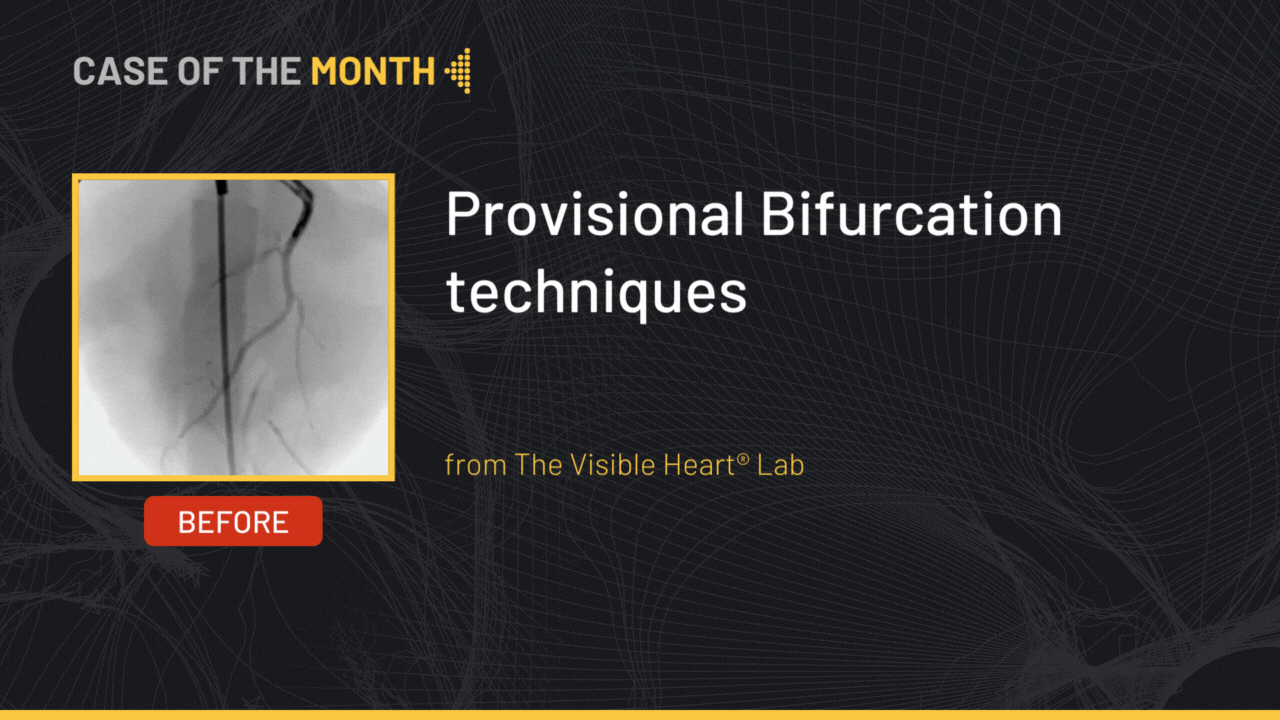
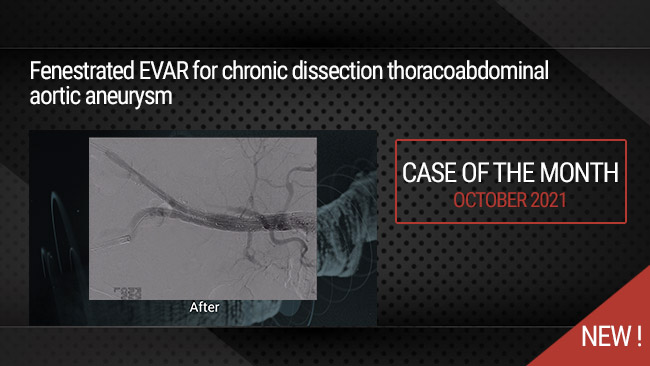
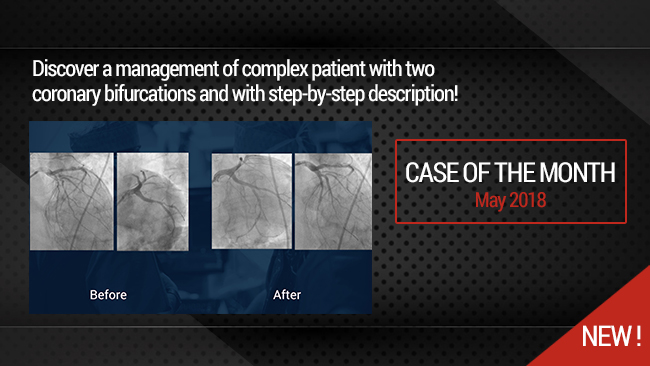
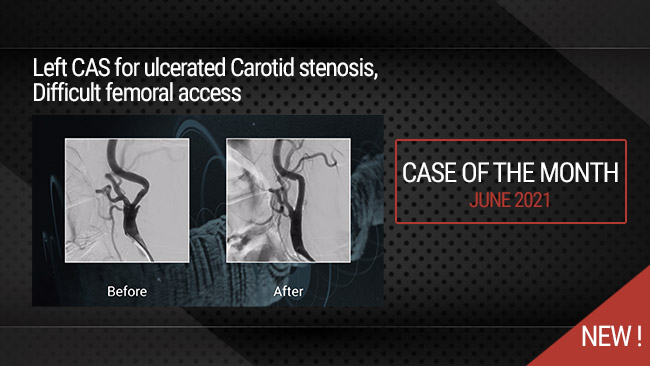
dramthirugnanam@aol.com D. position is not perfect
dramthirugnanam@aol.com D. 2 mm can be inside
v22e V. Excelent case !